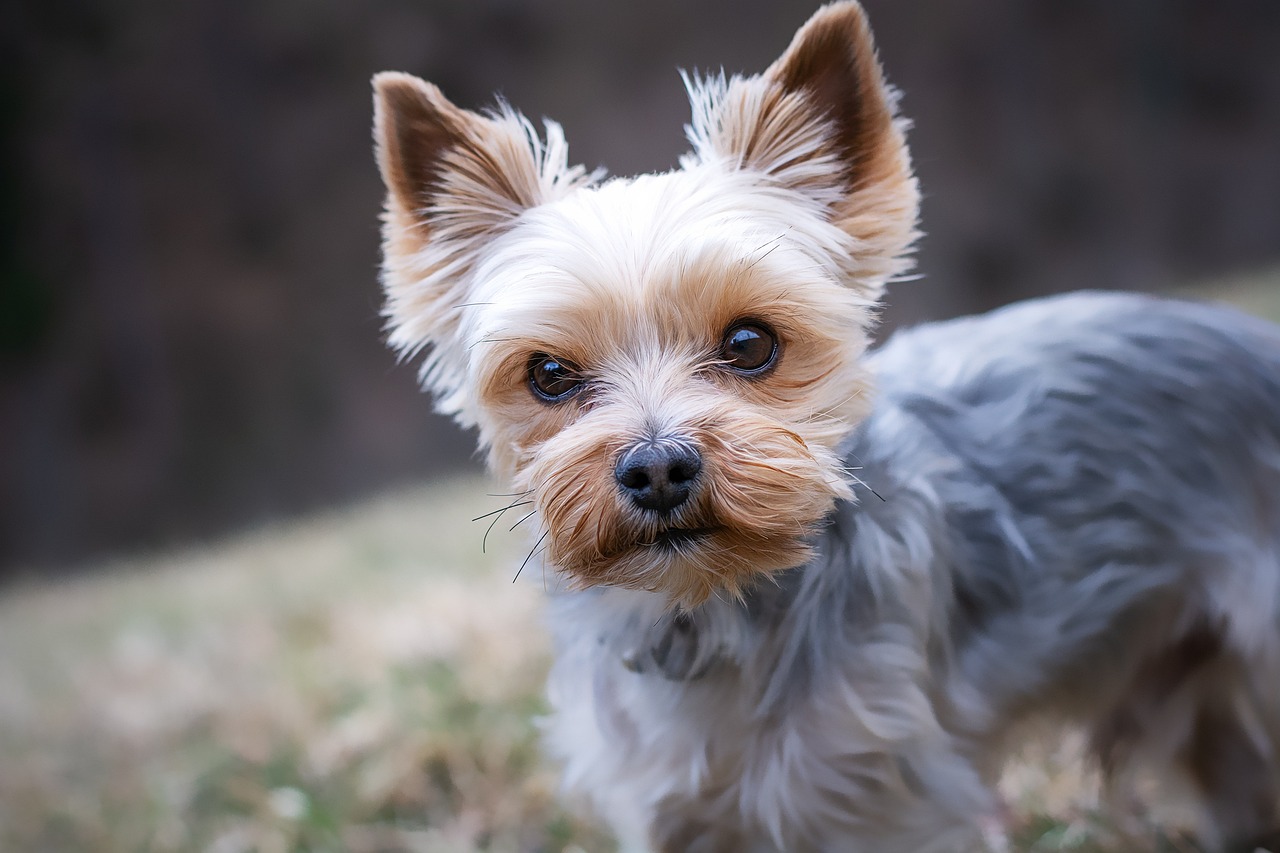
Yorkshire Terrier
The Yorkshire Terrier is a small dog with an excellent and amazing personality. They are wonderful companions for individuals of all ages since they are joyful and affectionate. The most well-liked breed of toy dog in the US is the yorkie, which has grown in popularity because of its loving disposition, lovely looks, and apartment-friendly lifestyle.
Yorkies are known for their yappy tendencies, so they might not be the best choice for people living in apartments with thin walls. They also require a bit of care, especially when it comes to dental hygiene. However, if you’re willing to put in the effort, a Yorkshire Terrier can make a wonderful pet. Yorkshire Terriers are playful and energetic, but their small size makes them susceptible to injury around children. If you have young children, it’s important to supervise them when they are playing with a Yorkie.
Yorkshire Terrier Breed History
As the name suggests, Yorkshire Terriers originated from Yorkshire, England. In the mid-1800s, a wave of workers from Scotland arrived in Yorkshire, bringing with them various terrier breeds. The workers in Yorkshire wanted to breed a working terrier to help them catch vermin in the mines.
To achieve their desired working terrier, the workers bred Black and Tan Terriers with Clydesdale Terriers and Paisley Terriers. Some experts believe that Maltese dogs were also used in the breeding of the first Yorkshire Terriers. It has also been suggested that they were originally bred with Scotch Terriers, but the breed was named the Yorkshire Terrier because most of its development occurred in Yorkshire.
In the early days, the breed’s definition was quite loose. Any terrier-shaped dog with a silver head and legs, blue on its body, a docked tail, cropped ears, and a long coat was described as a Yorkshire Terrier. This changed in the 1860s when a Paisley-type Yorkshire dog named Huddersfield Ben, owned by a local Yorkshireman, was seen at dog shows throughout England and set the breed standard for the Yorkshire Terrier. To this day, Huddersfield Ben is called the father of modern Yorkies.
The breed became very popular during the Victorian era and was hard to miss at dog shows. Yorkshire Terriers became part of royalty, and owning a small dog at the time became a popular trend—owning a Yorkie in particular became a symbol of wealth.
Breed Characteristics
- Breed Group: Toy Group
- Origin: England
- Size: Small
- Height: 17 cm – 21 cm
- Weight: 5-7 pounds
- Lifespan: 11-15 years
- Energy Level: Moderate
- Coat: Long, silky, and fine-textured
- Exercise: 45 minutes per day
- Shedding Level: High
- Maintenance Level: High
- Temperament: Spirited and loving
Health Issues in Yorkshire Terriers
Yorkshire Terriers are generally healthy dogs. However, the breed can develop some hereditary health issues, including:
Patellar Luxation: This condition causes the knee to be loose and dislocated, leading to symptoms like limping, licking the knee, and bending the knee at an unusual angle.
Collapsing Trachea: This is a chronic, progressive disease that doesn’t reverse, but treatment options are available. It can lead to noisy breathing, coughing, exercise intolerance, and retching.
Eye Problems: Yorkies can suffer from various eye issues like cataracts, conjunctivitis, progressive retinal atrophy (PRA), and keratoconjunctivitis sicca.
Portosystemic Shunt: This congenital liver disorder causes blood to bypass the liver, preventing the removal of toxins and absorption of nutrients. Symptoms include excessive urination and thirst, diarrhea, vomiting, dizziness, head pressing, and seizures.
Heart Disease: Regular check-ups with the vet can help detect early signs of heart disease, which might be easy to miss.
Intervertebral Disc Disease: This refers to a herniated disc in the spine. Symptoms include limping, dragging limbs, and stepping on the wrong side of the paw.
Dental Issues: Regularly check your dog’s teeth and gums for signs of gum disease and plaque and tartar buildup. Symptoms of dental problems include loss of appetite, difficulty eating, facial swelling, and pawing at the mouth.
Caring for a Yorkshire Terrier
Yorkshire Terriers enjoy walking and playing outside, but they are so active indoors that they don’t require much effort to stay well-exercised. Generally, Yorkies are receptive to training, especially if it involves performing charming tricks or participating in agility or obedience trials.
However, house training them can be challenging because their “accidents” are so small and easy to clean up that people tend to let it slide. This is a mistake. It’s better to show them where to go from the start and reward them for doing their business in the right place. With effort, you can end up with a well-trained Yorkie.
They are definitely indoor dogs and don’t tolerate extreme heat or cold well. Many people paper train their Yorkshire Terriers so they don’t need to be taken outside when the weather is too hot or cold. Yorkies love squeaky toys, but it’s important to check the toy every few days to ensure they haven’t chewed it open. They particularly enjoy fetching toys that you throw for them. If you’re crafty, consider crocheting a ball for your Yorkie—larger than a golf ball but smaller than a tennis ball—and stuffing it with used pantyhose.
Conclusion
Yorkshire Terriers make wonderful, active companions for households that are able to provide them the necessary care and attention. Yorkies infuse pleasure and love into any home with their distinct qualities and rich history. Even though they might need some more attention, particularly in regards to their training and health, the work is well worth it. A Yorkshire Terrier can bring loyalty and charm to any family with the right care and training, especially when it comes to young ones.
